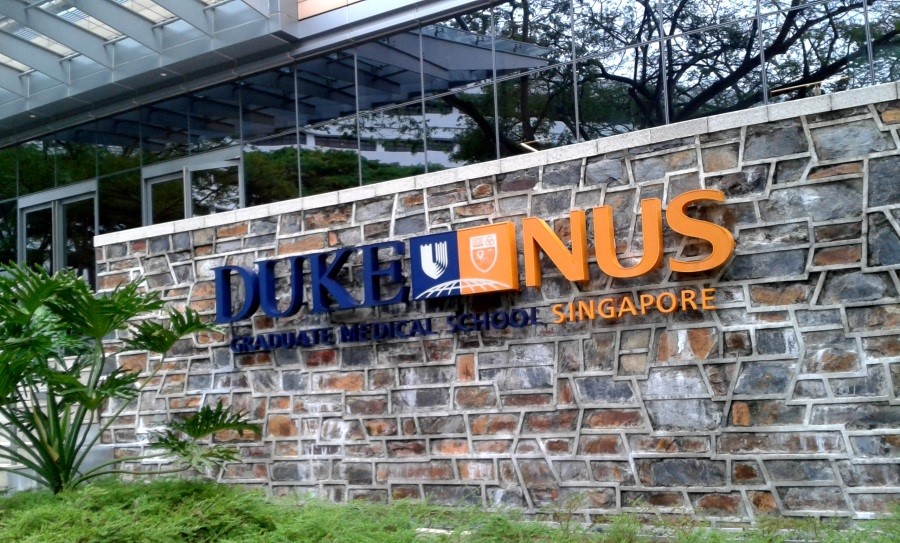Final year students of the IMU Biomedical Science programme are required to complete their attachment at hospitals or research centres of their choice as part of the requirements of their programme. Three students from this programme took this opportunity to do their attachments and had an unforgettable learning experience in Singapore. Two of these students, Ong Teik Hwa and Soon Yuen, spent 8-weeks undergoing his practical attachment in the Cancer Science Institute (CSI), Singapore. CSI Singapore is a state-of-the-art university research institute affiliated with, and hosted at, the National University of Singapore. “Living in Singapore and working in Cancer Science Institute opened our eyes, and we realised how people from different countries and cultures can work together. Staff whom we interacted with were friendly and willing to teach us. From this attachment, we learnt how to perform immunohistochemical and immunofluorescence staining under the supervision of research assistants. Apart from that, we also learnt to present the research findings to our supervisor every week. The expertise gained through this training had been greatly beneficial to us.” “Overall, working in CSI was a joyful learning experience and we have no regrets choosing CSI for our practical attachment. There are no words to describe our appreciation to the Student Mobility Programme which gave us a chance to polish our skills in Singapore.” Another student, Rusheni Munisvaradass had the opportunity to complete her research internship at Duke-NUS Graduate Medical School in Singapore. The two months spent in Duke-NUS was a great opportunity for her as she gained experience working in a state-of-art research laboratory with skilled professionals who are experts in their fields.  “During my attachment in Singapore, I was given a sub-project to work on under the banner of a main research project done by a senior research fellow, Dr. Wilfried Saron in our principal investigator, Dr Ashley St. John’s laboratory. I worked on the avidity of cross reactive flavivirus antibodies involving Dengue virus, Japanese encephalitis virus and Yellow Fever virus. It was a truly fascinating subject to work on and I am glad to have been a part of it. Furthermore, all my laboratory members in Duke-NUS and I also regularly attend seminars and research presentations conducted at the campus to increase our knowledge about current research areas.” “My experience allowed me to master key laboratory skills and gain knowledge about current biomedical research. My supervisors and colleagues were very helpful and guided me throughout the attachment. Their unfailing guidance and the abundance of information imparted to me have greatly developed my laboratory techniques and experience in addition to improving my presentation and communication skills when it comes to data presentation and experimental result discussion. It was a truly rewarding learning experience that deepened my interest in research.” “The trip abroad was not all work as I found the time to explore and visit popular tourist spots in Singapore, reveling in the architecture of its buildings and admiring its beautiful panoramas. I also spent a few nights out exploring Singapore further and sharing our experiences with my fellow classmates from IMU who were also in Singapore for their internships. In a nutshell, it was a completely enjoyable and unforgettable learning experience.”
“During my attachment in Singapore, I was given a sub-project to work on under the banner of a main research project done by a senior research fellow, Dr. Wilfried Saron in our principal investigator, Dr Ashley St. John’s laboratory. I worked on the avidity of cross reactive flavivirus antibodies involving Dengue virus, Japanese encephalitis virus and Yellow Fever virus. It was a truly fascinating subject to work on and I am glad to have been a part of it. Furthermore, all my laboratory members in Duke-NUS and I also regularly attend seminars and research presentations conducted at the campus to increase our knowledge about current research areas.” “My experience allowed me to master key laboratory skills and gain knowledge about current biomedical research. My supervisors and colleagues were very helpful and guided me throughout the attachment. Their unfailing guidance and the abundance of information imparted to me have greatly developed my laboratory techniques and experience in addition to improving my presentation and communication skills when it comes to data presentation and experimental result discussion. It was a truly rewarding learning experience that deepened my interest in research.” “The trip abroad was not all work as I found the time to explore and visit popular tourist spots in Singapore, reveling in the architecture of its buildings and admiring its beautiful panoramas. I also spent a few nights out exploring Singapore further and sharing our experiences with my fellow classmates from IMU who were also in Singapore for their internships. In a nutshell, it was a completely enjoyable and unforgettable learning experience.”


No approved comments.